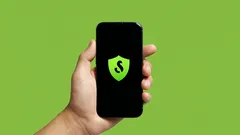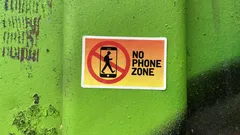199
6
5 minutes
Suggested Articles

Unlock the hidden phone setting that protects your bank account from scammers
Protect your bank account from phone scams with this hidden cell phone feature. Discover how to stop criminals from draining your finances by securing your device against common threats.

Protect your money from phone scams with these expert-approved tips
Online Safety & Privacy

Your Smartphone May Be Secretly Hacked: Spot the Warning Signs Now
Smartphones & Apps

Gmail’s new rules protect your inbox from scams and phishing tricks
Online Safety & Privacy

How WhatsApp scams are draining U.S. bank accounts and what you must do
Online Safety & Privacy

Don’t fall for fake online promotions that can steal your identity
Online Safety & Privacy

Travelers protect cash and peace of mind by treating ATM receipts like gold
Online Safety & Privacy

Doubleclickjacking Exposed: Outsmart the Silent Threat to Your Online Accounts
Online Safety & Privacy

How Fake Tech Support Scams Trick You and Simple Ways to Stay Safe Online
Online Safety & Privacy

Unlock Hidden Protection Secrets to Make Your Guest Wi-Fi Safer Than Ever
Online Safety & Privacy

Playing video games together strengthens relationships and sparks real connection
AI & Everyday Tech

US crypto pioneers transform bold risk into life-changing fortunes
AI & Everyday Tech

Tech leaders embrace waste-to-carbon solutions as Microsoft bets big on green AI
AI & Everyday Tech

Travelers and campers embrace portable backpack laundry tech for freedom and clean clothes anywhere
Gadgets & Reviews

Sleep experts champion a smart anti-snoring belt for restful nights and healthier mornings
Gadgets & Reviews

Drivers use Google Maps and Waze to avoid fines but risk safety trade-offs
AI & Everyday Tech

App lovers seize this week’s best free premium downloads before time runs out
Smartphones & Apps
 W3 CodeCraft
W3 CodeCraft

Comments